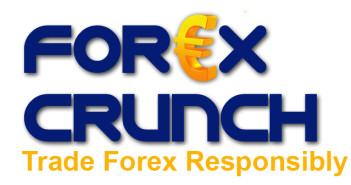Political tension in the Middle East heightens from time to time, and some of them have a strong impact on currencies – some benefit and some retreat. Here’s a guide.
Towards the end of June, there was a rumor that Israel will attack Iran. This rumor, which didn’t materialize, had a strong impact on currencies – it temporarily stopped the EUR/USD rally. There’s new tension now in Lebanon, and this may have a similar, and perhaps a stronger effect:
Sensitive Background
The murder of former Lebanese Prime Minister Rafiq al-Hariri is still an open wound in Lebanon. His son, Saed al-Hariri is the current Prime Minister. The government of the young al-Hariri is funding an international tribunal that is about to point the finger on members of the armed rival party – Hizballah. Tensions are high in Lebanon, and there’s fear of a civil war.
And how do internal Lebanese affairs have to do with the rest of the world? This conflict is far from being only internal. The Saudi king and the Syrian president have already made a historic visit to Beirut in attempt to calm things down, as both countries have interests in Lebanon. Also Iran, backing Hizballah is highly involved in Lebanon.
Hasan Nasrallah, the leader of Hizballah, will hold a press conference on August 9th and is expected to blame Israel for the murder of Hariri the father, demanding that the son will call off the tribunal and not blame Hizballah.
There are fears that Nasrallah will chose to divert the internal tensions to another conflict with Israel. Similar tensions in July 2006 brought to the outbreak of a full scale month long war between Israel and Hizballah. A border clash, the worst since the war in 2006, already occurred last Tuesday, August 3rd, and claimed the lives of 4 Lebanese and one Israeli. The clash was contained and didn’t deteriorate into a war.
Tensions are very high towards Nasrallah’s press conference due today at 17:30 GMT, and the actions that will follow. According to rumors, 4 armies are in the Middle East are on alert.
Impact on Forex Trading
CAD: The Middle East is rich in oil, and an escalation will make oil less accessible – raising its price. The currency that will immediately benefit from a crisis is the Canadian dollar. The loonie’s correlation with oil prices is quite strong. Note that the impact won’t be as strong as it usually is with sparks in oil prices, as the loonie isn’t the classic safe haven currency.
USD: The safe haven currencies are the Japanese yen and the US dollar. In times of world crisis, both currencies rise against all the rest. Currently, the US dollar is somewhat more vulnerable due to the US slowdown, so also here, it will probably gain, but not leap.
JPY: So, if the current situation deteriorates, the Japanese yen will benefit most. After a strong rally against the dollar, USD/JPY stalled before breaking 84.82, the 15 year low. This could take it over the cliff.
CHF: Another currency that will be relatively strong in case of a Middle East crisis is the Swiss Franc. The Swissy isn’t the No. 1 safe haven currency it used to be, but it’s still resilient.
The other currencies are more vulnerable, due to their status as “risky currencies”: Euro, British Pound, Australian dollar and New Zealand dollar. They are likely to fall on an outbreak of a Middle Eastern conflict.
A full-scale Middle Eastern crisis might be avoided once again, but it may break out anytime in the future. So, this guide should be useful in the long run as well.
Want to see what other traders are doing in real accounts? Check out Currensee. It’s free..
